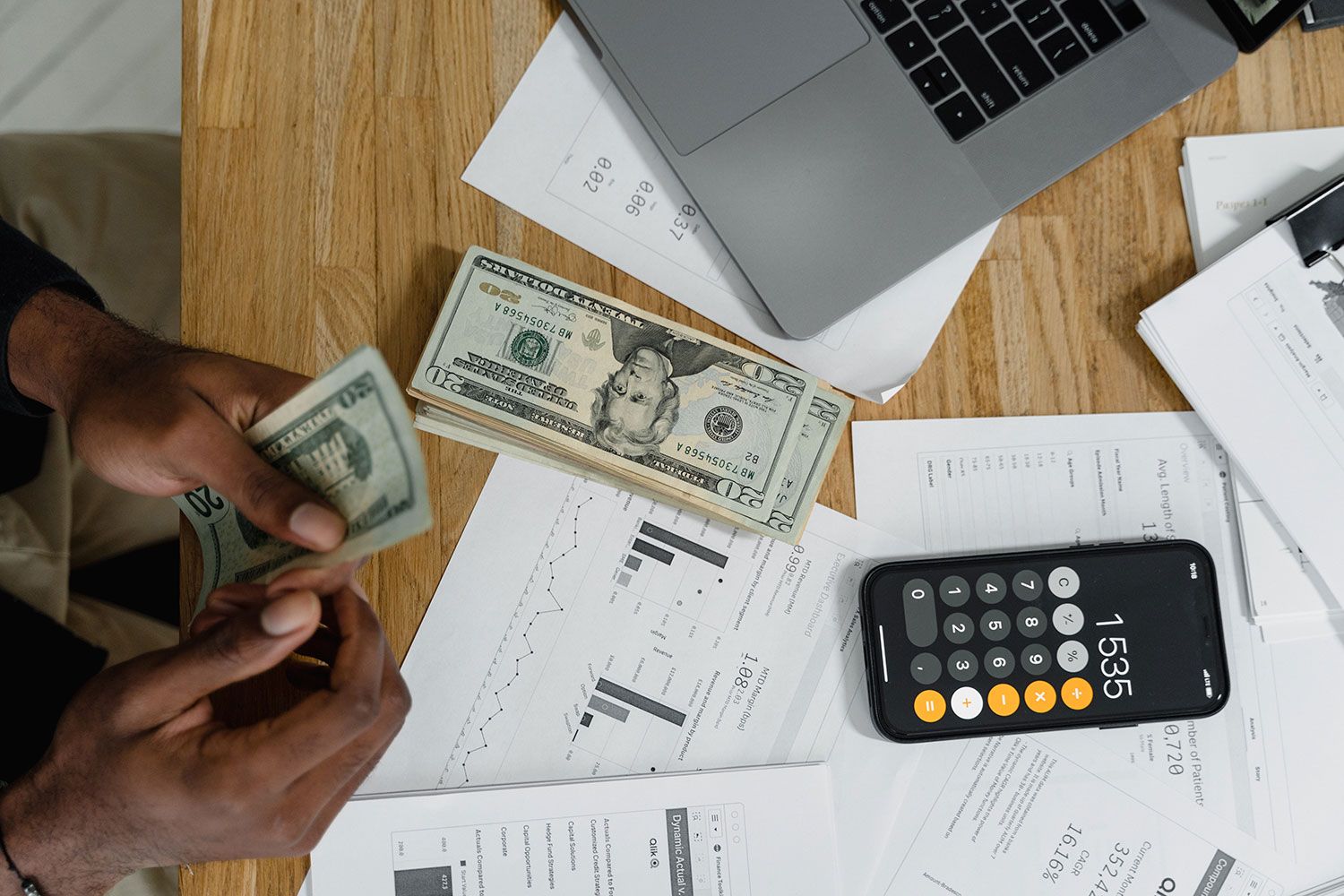How To Pay Off Your Mortgage Early

You’ve qualified for a mortgage and bought the home of your dreams. Congratulations! Now, instead of paying rent to a landlord, you’ll be making a monthly payment to your mortgage lender for the life of your home loan, which for most borrowers means a 30-year mortgage. This is quite a commitment, which leaves many people wondering how they can reduce this time and pay off their mortgage earlier.
How To Pay Off Mortgage Early
- Refinance
- Make Extra Payments
- Round Up Payments
- Downsize
- Use the Dollar-a-Month Plan
Paying off any loan in a shorter amount of time takes a dedicated plan and conscientious budgeting, and paying off a mortgage early is no different. There are several approaches you can take to whittle down your mortgage principal balance from making an extra payment periodically, refinancing, or setting up your account for biweekly payments. Whatever plan you choose will get you that much closer to owning your home outright, but you have to be serious about your financial goal and put in consistent effort to make it happen.
How To Pay Off Mortgage Early

Refinance
One of the fastest ways to pay off your mortgage is to refinance. However, this is only a worthwhile option if you’re able to secure a lower interest rate than the one you currently have. Additionally, you’ll want to take into account that refinancing is equivalent to taking out an entirely new mortgage which means you’ll also be responsible for paying closing costs like loan origination fees, title fees, or appraisal costs. That said, if you can get a substantially lower rate (even a single point can make a big difference), you can save thousands on your interest payment alone. With these new savings, you can use this extra cash to pay more each month toward your principal balance.
Alternatively, you may choose to refinance a mortgage from a 30-year loan to a 15-year loan which will cut your payment term in half. Of course, this will mean that your monthly mortgage payment will be quite a bit higher than it was before.
Round Up Payments
Another simple strategy for paying off your mortgage early is rounding up on your monthly payment. For instance, if you normally pay $1,350, bump it up to $1,400 and this seemingly small amount can go a long way toward paying off your loan. Using this example, let’s say your total loan amount was $255,000 at 5%, adding an additional $50 a month would take more than two years of the life of your loan and save you nearly $20,000 in interest.
Downsize

Downsizing your home is a huge step to take, but it’s also one that can have a major impact on your overall finances. If you’ve found yourself in a house you like but is too big for your needs, consider selling it and moving into a smaller home that costs less. By selling your more expensive home, you can then use those profits to purchase a smaller, less expensive home and pay it off quickly since you’ll be saving so much compared with your previous mortgage.
Or, you may earn so much on selling your larger home that you’ll be able to pay cash for the smaller home and then have no mortgage at all. Smaller homes also have the added bonus of being easier to maintain and you’ll save money on utilities because they use less energy to heat and cool.
Make Extra Payments
It may seem obvious, but simply making extra payments on your loan can have a considerable effect on how long it takes to be paid off in full. However, there are a few different ways to go about doing this.
Pay Extra Each Month
An easy way to chip away at your mortgage is by simply increasing the amount you put toward your mortgage payment each month. Some borrowers choose to do this through a bi-weekly payment plan instead of paying monthly. Most mortgage lenders will be able to accommodate this and the effect on your pocketbook may be barely negligible since you’ll only end up spending the equivalent of 13 months of payments in a year instead of 12. For example, if your regular monthly mortgage payment is $1,200, you’d instead pay $600 every two weeks for a total of 26 payments. In this example, you’d only be adding $144 a month to your mortgage budget, but even this small amount can make a big difference.
You can also make this process even simpler by just tacking on an additional $100 (or whatever you can afford) each month to your payment. By using this strategy, you’ll also be able to account for any budgetary surprises and drop back down to your regular payment if an emergency pops up.
Make an Extra Payment Annually
Some people aren’t able to set aside money from their personal budget, but they may be able to make one extra mortgage payment annually. If you regularly receive a holiday bonus at work or know you’ll be getting a refund after filing your taxes, this could be a good option for you.
Mortgage Recasting
Mortgage recasting (also referred to as a mortgage reamortization) is a process where the homeowner makes a large, extra principal payment toward the value of their loan and then asks their lender to revise the amortization schedule on their loan using the same mortgage interest rate and loan term.
This differs from making smaller payments on your principal over time because it’s a much larger amount (typically lenders require at least a $10,000 payment), and because you’re requesting a reamortization your monthly payments will be lowered based on this new lower principal. There’s usually a fee of a few hundred dollars associated with recasting, but most lenders have no limits on how many times you can go through this process.
This is a good option for those who’ve come into a large sum of expendable income and can afford to add this to their mortgage. For example, this may be a good idea for someone who’s just inherited a lot of money or someone who had to purchase a new house before selling their old house. Once their old house sells, they can use a portion of the profits to bring down their principal balance. This tactic won’t technically shorten the length of your mortgage, but by permanently lowering your monthly payments you’ll have more options with your budget in the future.
Use the Dollar-a-Month Plan
Finally, there’s the dollar-a-month approach which can make this endeavor a lot more fun for many people. The idea is simple: for your first monthly payment, add one dollar to your total. The next month you’ll add two dollars, the next three, and so on. In three years you’ll have only added $36 to each payment, but this amount will keep increasing without you feeling the impact of it because it’s happening so slowly.
Should You Pay Off a Mortgage Early?

Even if you can pay off your mortgage early, it doesn’t necessarily mean it will make the most economic sense for your particular situation. The best choice for you will depend on your current mortgage rates, the type of home loan you have, and what other investment opportunities you could be spending your money on.
PROS
- **Save on Interest:**Most borrowers are astounded by the amount of their mortgage debt that’s made up of interest payments. In fact, over the lifetime of a 30-year loan, it’s not uncommon to pay more in interest than you do on the principal loan amount. By formulating a plan to pay off your mortgage earlier, you could save tens of thousands of dollars in interest alone, not to mention getting out of debt faster.
- **Free Up Budget:**Whether you opt for a 30 or 15-year mortgage, you’re committing to making regular payments and setting aside a substantial amount of your budget for the next one, two, or three decades. So, the sooner you pay off your mortgage loan, the sooner you can use this money for other expenses like retirement savings, your emergency fund, or even vacations.
- **Increase Home Equity:**Every time you make a payment toward the principal on your loan, you’re increasing the amount of equity in your home. This not only increases your net worth but also gives you access to other sources of money by taking out a home equity loan or home equity line of credit (HELOC).
CONS
- **Possible Repayment Penalties:**Repayment penalties are fairly uncommon with fixed-rate mortgages, but they’re much more prevalent when you opt for an adjustable-rate mortgage (ARM). With these loans, you’ll agree to an initial rate lock for the first five, seven, or 10 years of your loan and after this period is over, your rate will then adjust every six months or one year based on market conditions. This initial rate is often much lower than it would be for a conventional loan and to guarantee that your lender will receive the amount of interest they need, they’ll often impose a prepayment penalty (which is sometimes thousands of dollars) if you pay off your loan early.
- **Higher Tax Bill:**Making larger payments toward your mortgage can sometimes end up in a higher tax bill. This is because you get a tax deduction for payments made toward mortgage interest. If you put money toward your principal or no longer have a mortgage payment, you’ll be missing out on this deduction.
- **Lose Out on Higher Returns from Other Investments:**In general, making an additional payment on a loan or investment that can increase your net worth is always a good idea, but if you have more than one option for where to put extra money, you’ll want to make sure you’re getting the most for your dollar. Also, before committing extra funds to your mortgage, make sure you understand the difference between good debt vs bad debt. For example, if you have other debt you’re responsible for – especially consumer debt with a high interest rate – your extra money is better spent here improving your credit score rather than paying off your mortgage early. Or, if you have a mutual fund that’s earning 7% and your mortgage rate is only 4%, the investment will earn you more money.
For most people, obtaining a home mortgage is a major life event and one that signifies you’re in a financially stable situation and have been entrusted to pay back a large amount of money. While not everyone will be able to commit an extra monthly payment to pay this loan down earlier, even an additional $10, $20, or $30 a month can make a real difference.